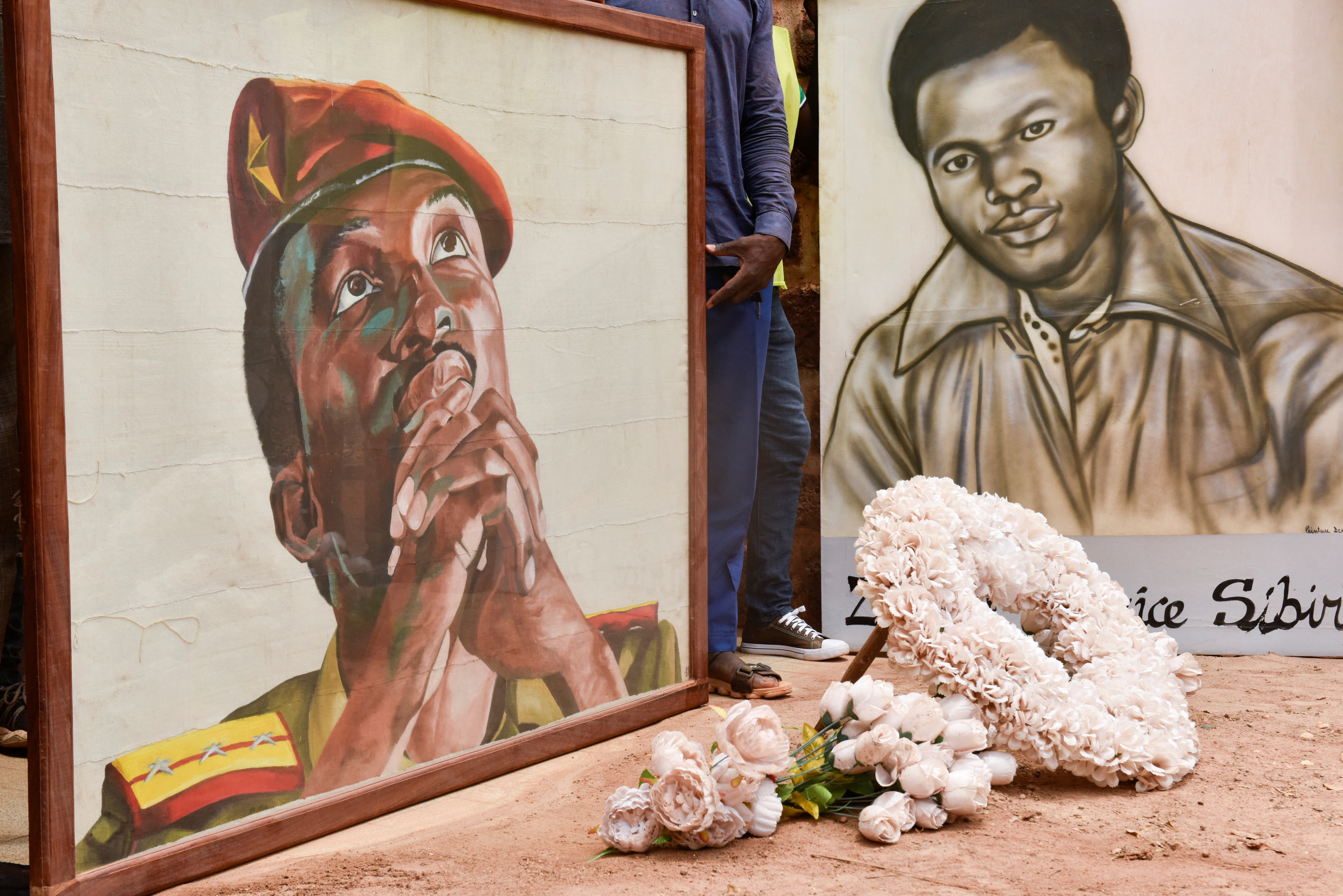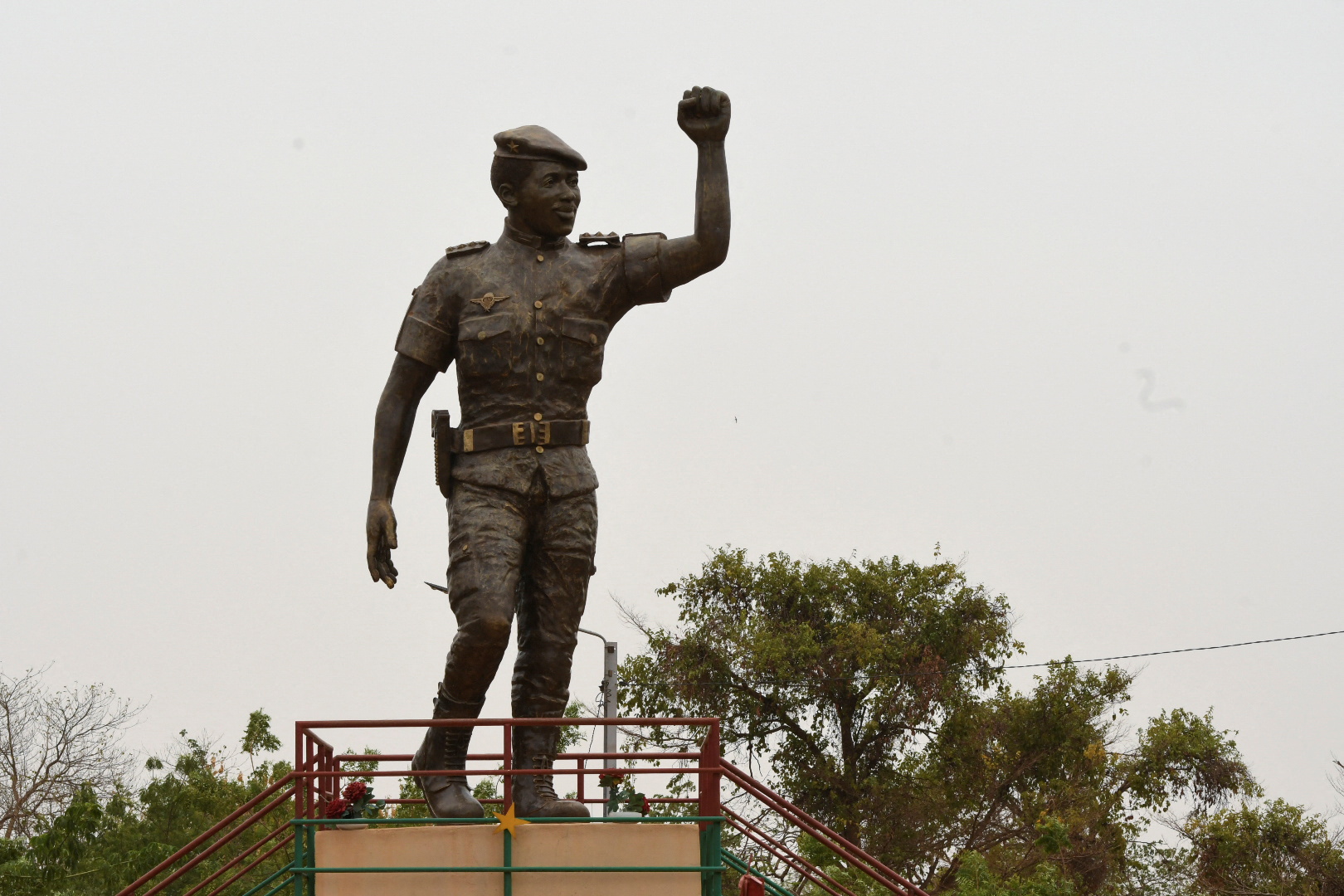
The former president of Burkina Faso, Blaise Compaoré, was sentenced to life imprisonment after being convicted of complicity in the murder of his predecessor, Thomas Sankara, in 1987, as ruled by a military court.
Sankara, a charismatic Marxist revolutionary, was infamously shot dead in the capital of the West African nation, Ouagadougou, at the age of 37, four years after he took power in a coup d'état.
Compaoré was tried in absentia along with his former head of security Hyacinthe Kafando, who was also sentenced to life imprisonment. Both have previously denied any involvement in Sankara's death.
Sankara and 12 colleagues were shot dead by a death squad on October 15, 1987, at a meeting of the ruling National Revolutionary Council. The massacre coincided with a coup d'état that brought Sankara's former comrade, Compaoré, to power.
Throughout his 27-year reign, Compaoré tightly closed the circumstances of Sankara's death, fueling speculation that he was the mastermind.

After nearly three decades in power, another coup d'état in 2014 would end the Compaoré regime, who fled to Côte d'Ivoire after losing control of the country.
The African “Che Guevara”
Thomas Sankara, known as the African “Che Guevara” for his sympathy with the Cuban Revolution, is one of the most admired political figures in recent African history for his charisma and ideas, which still inspire young people from the continent.
Sankara was president of Burkina Faso between 1983 and 1987, when he was assassinated, a murder that on 11 October, more than thirty years later, began to be tried in a military court in Ouagadougou, the capital of Burkina, in an attempt to obtain justice.
Born on December 21, 1949 in Yako, a town about a hundred kilometers from Ouagadougou, into a Christian family and the first male of eleven siblings, he followed in his father's footsteps and began his military career in Madagascar at the age of 19.
In 1972 he returned to his country, where he fought in the border war between Burkina Faso (then called Upper Volta) and Mali; and in 1976 he met Blaise Compaoré, his close friend and comrade-in-arms with whom on August 4, 1983 he perpetrated the coup d'état with which he came to power at the age of 33.
Influenced by the works of Karl Marx and Vladimir Lenin, Sankara began a revolution inspired by those of the Argentinean nationalized Cuban guerrilla and politician Ernesto “Che” Guevara and the then president of Cuba, Fidel Castro, with whom he met several times.
Although he did not know “Che”, Sankara is called the African “Che Guevara” because of his ideological similarities and because both died at the age of thirty.
Castro met for the first time in March 1983 at the seventh summit of the non-aligned countries in New Delhi.
“During this first conversation I understood that Fidel has great humanity, a very keen intuition, and that he was aware of the importance of our struggle, of the problems of my country,” Sankara said years later in an interview on a radio station in Ouagadougou.

He visited Cuba in 1984 - when Castro awarded him the Medal of the Order of José Martí - and in 1986. Since 1983, it signed cooperation agreements in health, agriculture, education and transport between the two countries.
Sankara's ideas were anti-imperialist, pan-Africanist, feminist and environmentalist, but he was also a patriot who opted for local consumption of products such as traditional fabrics made with cotton from the African country.
His love for his country caused him to change his name in 1984, from being Alto Volta - a colonial name that appealed to the upper reaches of the Volta River - to Burkina Faso, which means “land (or homeland) of men of integrity” in two local languages.
When he spoke, Sankara did not leave anyone indifferent. One of the best-known speeches of this politician and military man was the one he gave in Addis Ababa in July 1987 at a summit of the Organization for African Unity (now the African Union) against foreign debt.
“It is the colonizers who indebted Africa to the moneylenders, their brothers and cousins. We are alien to this debt. Therefore, we cannot afford it,” he argued, leaving many African leaders speechless and making some laugh.
Known for his humility, Sankara drove a small Renault 5 and such gestures, which were in tune with ordinary people, made him very popular, but he also had detractors and enemies.
“Either I will end up being an old man somewhere or it will be a violent end because we have many enemies. Once you accept that, it's only a matter of time,” he predicted.
After admitting that his revolution was flawed, Sankara also created - as in Cuba - the Committees for the Defense of the Revolution in each neighborhood in the so-called “era of rectification” to resolve its failures, but many used them in their own interest.
On October 15, 1987, Sankara - along with twelve of his acolytes - was killed at the age of 37 by a coup command led by Compaoré, which stormed his office.
The bodies of Sankara and his comrades were quietly buried and the doctor, Colonel Alidou Jean Christophe Diébré, examined the body and indicated on the death certificate that the cause of death was “natural”.
Accused of falsifying a public deed, Diébré asked for forgiveness at the trial when explaining his motivations and was eventually acquitted.
After Compaoré's departure, the tombs could be opened to unlock the investigation into the murder of the charismatic African leader, but after the exhumation of the body, the DNA tests proved “inconclusive”.
However, the experts claimed that the body was shot several times, which is consistent with the testimony of witnesses to the Sankara murder and gave hope that the trial that today ended more than three decades of impunity could take place.
The Sankara government was credited with the leap in the provision of education and health care, social reforms to end polygamy and female genital mutilation.
KEEP READING
Últimas Noticias
Debanhi Escobar: they secured the motel where she was found lifeless in a cistern

The oldest person in the world died at the age of 119

Macabre find in CDMX: they left a body bagged and tied in a taxi
The eagles of America will face Manchester City in a duel of legends. Here are the details

Why is it good to bring dogs out to know the world when they are puppies




